When María Corina Machado, national coordinator of Vente Venezuela learned she had just won the 2025 Nobel Peace Prize, she was still holed up in a safe house in Caracas, hidden from the authorities. The announcement came at 21:52 UTC on 10 October 2025, via a Deutsche Welle video that quickly went viral. The surprise honor shines a global spotlight on a woman who has spent three decades battling an increasingly authoritarian regime.
From Street‑Children Projects to International Spotlight
Machado’s activism began in 1992 when she founded the Atenea Foundation to provide education and shelter for street children in Caracas. Ten years later she co‑created Sumate, an election‑monitoring group that trained volunteers and pushed for free, fair votes in a country where ballot‑box fraud had become routine.
Her political breakthrough came in the 2010 National Assembly elections, where she captured the highest vote total of any candidate. Serving from 2010 to 2015, Machado quickly earned a reputation as “one of the strongest and most critical voices” denouncing the Maduro government’s human‑rights abuses, economic collapse, and the mounting humanitarian crisis.
In March 2014 she took the floor of the Organization of American States’ Permanent Council in Washington, D.C., after Panama granted her a speaking right. There she warned of the “systematic violations of human rights” under President Nicolás Maduro. Shortly after, the National Assembly’s president Diosdado Cabello expelled her without due process, an act later condemned by several UN bodies.
Why the Nobel Committee Chose Machado
The Nobel Committee’s citation highlighted her “persistent non‑violent struggle for democracy, human rights and social justice in Venezuela.” The prize ceremony, scheduled for early December in Stockholm, Sweden, will be the first time a Venezuelan opposition figure has received the accolade.
Analysts point to three overlapping factors: her decades‑long grassroots work, her ability to unite disparate pro‑democracy factions (including the Soy Venezuela alliance she helped launch in 2017), and the growing international frustration over the country’s prolonged crisis. The Nobel decision also signals a broader shift, as the committee has increasingly used the peace prize to reward civil‑society leaders rather than heads of state.
Political Repercussions Back Home
In Caracas, the reaction was predictably mixed. Government‑affiliated media dismissed the award as “foreign interference,” while underground networks celebrated it as a morale boost. The Maduro administration has not commented publicly, but insiders say security forces are tightening patrols around known opposition safe houses.
Machado’s 2024 presidential bid—blocked by the Supreme Tribunal of Justice under Maduro’s direction—remains a point of contention. Her Nobel win could bolster future diplomatic pressure, yet it also risks harsher crackdowns. Human‑rights NGOs warned that any public appearance by Machado could trigger a wave of arrests, echoing the 2014 expulsions of other opposition lawmakers.
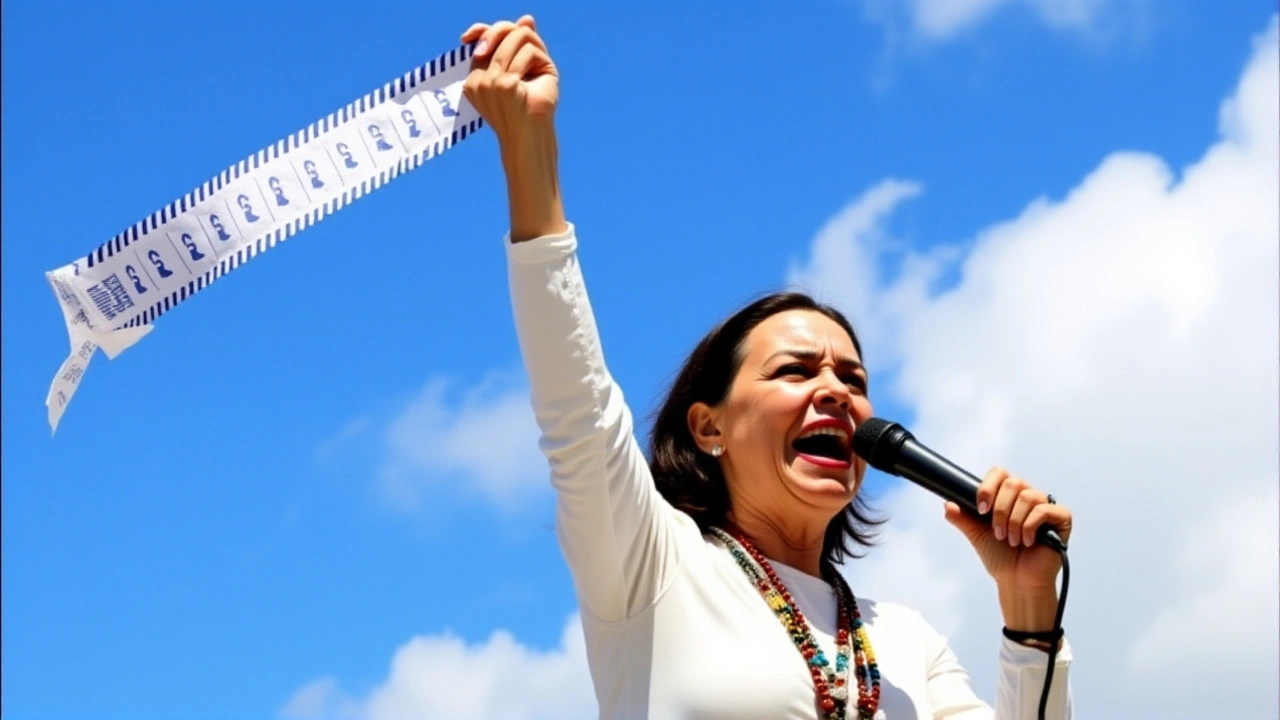
International Reactions and What They Mean
European Union foreign policy chief Josep Borrell called the award “a powerful endorsement of the Venezuelan people’s yearning for freedom.” In the United States, Secretary of State Antony Blinken pledged “renewed support for democratic actors” and hinted at fresh sanctions targeting officials responsible for election‑related repression.
Deutsche Welle, the outlet that first broke the story, noted that the prize could reshape the diplomatic calculus in Latin America, where several governments have remained hesitant to openly criticize Caracas. The Nobel’s prestige may also nudge regional bodies like the OAS to revisit their own mechanisms for monitoring Venezuelan elections.
What’s Next for Machado and Venezuela?
For now, Machado remains underground, communicating primarily through encrypted messages and brief statements released by her spokesperson. The Nobel Committee has offered a cash award of 10 million Swedish kronor (about $1.0 million), which she says will be funneled into “humanitarian projects for the most vulnerable Venezuelans.”
Observers expect a flurry of diplomatic activity in the weeks ahead: possible UN‑backed fact‑finding missions, renewed calls for free elections, and intensified humanitarian aid deliveries. Whether the prize can translate into tangible political change remains an open question, but it has undeniably placed the Venezuelan crisis back on the world stage.
Frequently Asked Questions
How does the Nobel Peace Prize affect the Venezuelan opposition?
The award gives the opposition an unprecedented boost of legitimacy and media attention. International donors are more likely to fund NGOs linked to Machado, and foreign governments may use the prize as a diplomatic lever to press Maduro’s regime.
What led to Machado’s expulsion from the National Assembly in 2014?
Assembly President Diosdado Cabello removed her by decree, citing alleged procedural violations. Independent observers later classified the move as a clear breach of due‑process guarantees and an effort to silence a vocal critic.
Why was Machado barred from running in the 2024 presidential election?
Venezuela’s Supreme Tribunal, heavily influenced by President Nicolás Maduro, ruled that Machado failed to meet residency requirements—a decision widely condemned as politically motivated.
What is the significance of the award ceremony location?
The Nobel ceremony will take place in Stockholm, Sweden, a neutral venue that underscores the prize’s global moral authority. While Machado may not attend in person, the venue ensures a high‑profile platform for the issue.
Will the Nobel cash prize be used for political activities?
Machado has pledged to allocate the 10 million‑kronor award to humanitarian aid for Venezuelan children and to fund election‑monitoring training, aiming to keep the funds strictly non‑political and transparent.

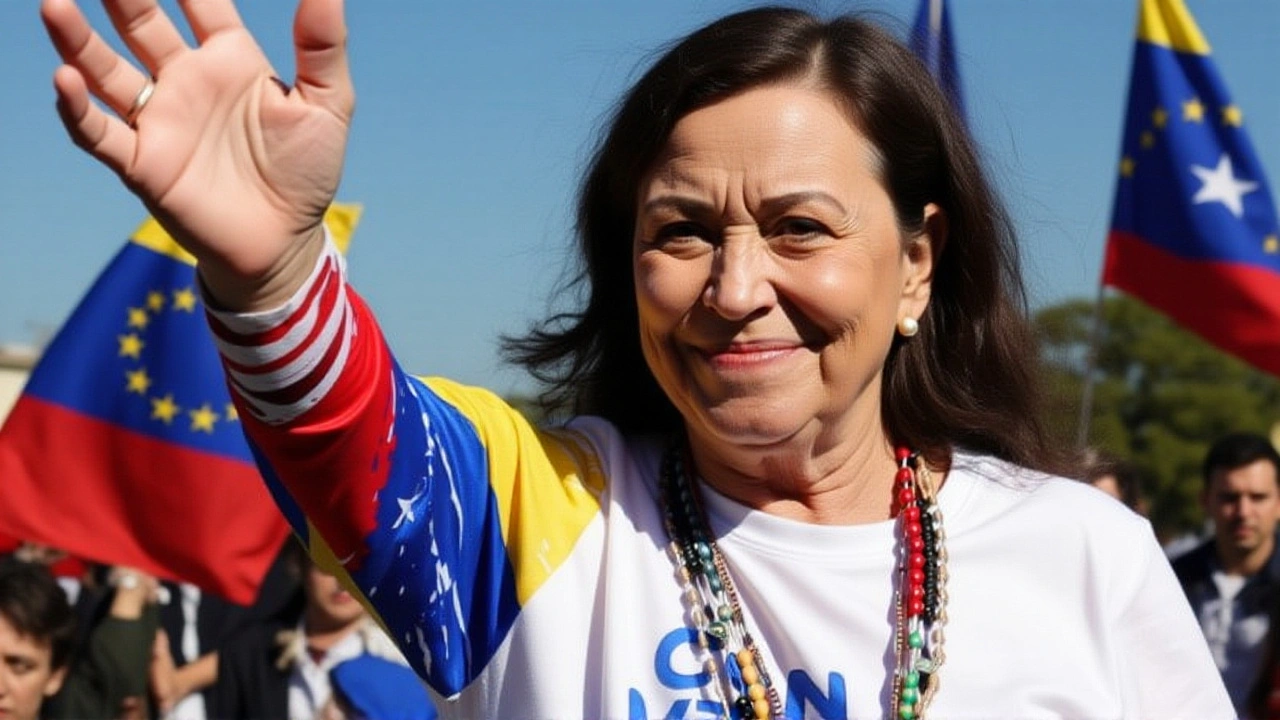
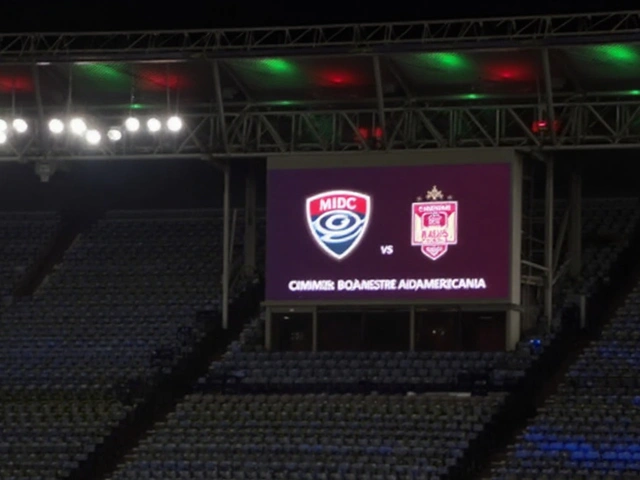

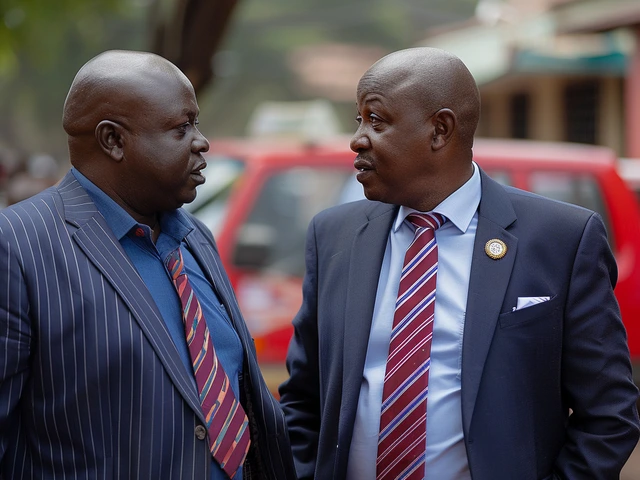
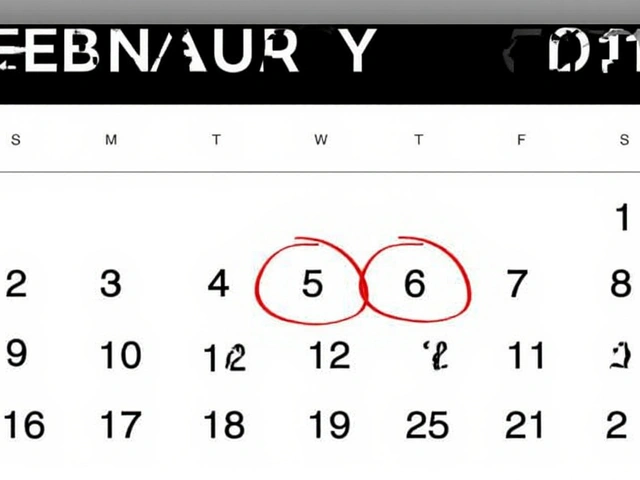
crazy how a Nobel can still reach someone hiding
The prize basically flags Venezuela for the world. It also gives opposition a legit platform, but it won’t change Maduro’s grip overnight.
One can regard the Nobel as a symbolic crown, an acknowledgment of persistent non‑violent struggle. Yet symbols alone cannot dismantle entrenched authoritarian structures. The award may amplify international pressure, but the internal machinery of repression remains. History shows that external accolades rarely translate into immediate policy shifts. Nonetheless, the moral weight of such recognition should not be dismissed lightly.
Machado’s win is a clear signal that the global community is no longer indifferent. It forces regimes like Maduro’s to reckon with a new diplomatic reality. If they continue the crackdown, they risk deeper isolation. The opposition now has a stronger bargaining chip. The world will be watching how Caracas responds.
Oh great, another Nobel to appease the Western moral high ground. As if a medal can untangle decades of corruption and misery. Sure, let’s hand out shiny medals while people line up for bread.
Congrats to her, but the real battle is on the streets, not the ceremony. Let’s hope the cash reaches the kids in need.
The Nobel Peace Prize awarded to María Corina Machado is more than just a trophy; it is a strategic lever in the long‑standing struggle for Venezuelan democracy.
First, the international spotlight that accompanies the prize forces governments and NGOs to reevaluate their engagement policies with Caracas.
Second, the cash component, ten million Swedish kronor, provides a concrete resource that can be channeled directly into humanitarian projects, bypassing state‑controlled distribution channels.
Third, the symbolic validation of non‑violent resistance elevates civil‑society initiatives, encouraging grassroots organizers to persist despite repression.
Fourth, the award creates a diplomatic opening for UN‑backed fact‑finding missions, which could document human‑rights violations with greater credibility.
Fifth, it empowers the opposition to demand free elections with a stronger negotiating position, as external actors may feel compelled to support credible electoral processes.
Sixth, the prize highlights the role of women leaders in peacebuilding, challenging patriarchal narratives in Latin America.
Seventh, it may trigger a cascade of sanctions targeting individuals responsible for electoral fraud, as indicated by recent U.S. statements.
Eighth, regional bodies like the OAS are likely to revisit their monitoring mechanisms, potentially leading to more robust observation missions.
Ninth, the award’s moral authority puts pressure on multinational corporations operating in Venezuela to adopt stricter human‑rights due diligence.
Tenth, it revitalizes diaspora activism, giving expatriate Venezuelans a unifying cause around which to organize aid and advocacy.
Eleventh, the Nobel Committee’s choice signals a shift toward recognizing civil‑society actors rather than heads of state, setting a precedent for future selections.
Twelfth, the global media coverage can amplify stories of individual suffering, fostering empathy that translates into increased humanitarian aid.
Thirteenth, the prize may inspire similar recognitions for other hidden activists, creating a ripple effect across authoritarian contexts.
Fourteenth, it places Machado’s name alongside historical peace champions, ensuring her narrative endures beyond the current crisis.
Finally, while the prize alone cannot dismantle Maduro’s regime, it provides a vital platform for sustained international advocacy, which, when combined with internal resistance, could eventually tip the scales toward democratic transition.
Esteemed colleagues, the Nobel accolade signifies not only recognition of personal bravery but also an affirmation of collective aspirations for liberty. It underscores the ethical imperative for the global community to stand with Venezuelan civil society. May this honor translate into actionable support for those most affected by the crisis.
Seeing this news makes me hopeful that more voices will join the effort. It’s a reminder that solidarity can cross borders and empower those on the ground.
My heart goes out to everyone suffering in Venezuela 😊. This Nobel win is a beacon of hope, showing that courage does not go unnoticed.
That’s a massive shout‑out for the people fighting everyday. If the cash reaches the kids, it could really change lives.